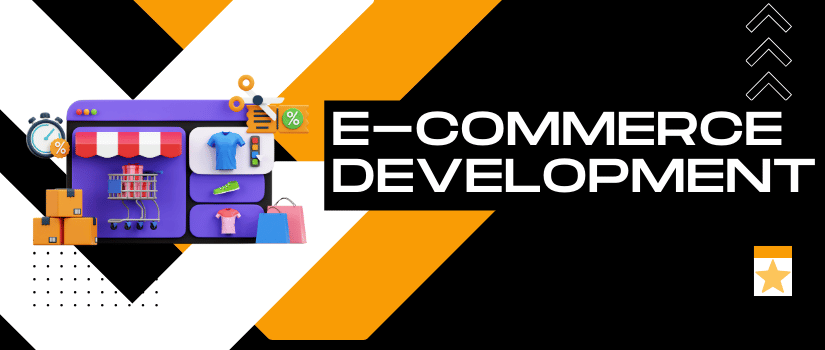E-commerce development involves creating online platforms where businesses can sell products or services directly to consumers. This process encompasses a range of activities, from designing user-friendly interfaces to integrating secure payment gateways. With the rise of online shopping, effective e-commerce development is crucial for businesses to reach a global audience and increase sales.
E-commerce business is a trending and rapidly growing business with customers preferring to buy online today, and the number of active buyers on the internet keeps on increasing day by day.
At Softwin Infotech, we understand the latest trends of e-commerce with in-depth knowledge of how online shopping systems work & what e-commerce strategies are being used. Our team of professional web developers have a great experience of developing e-commerce websites that deliver a great online shopping experience and lead customers to complete the order.
E-commerce development is a comprehensive process that involves creating robust, secure, and user-friendly online stores. By understanding the key components and following a structured development process, businesses can build effective e-commerce platforms that drive sales and enhance customer satisfaction. As online shopping continues to grow, investing in high-quality e-commerce development become increasingly important for businesses aiming to thrive in the digital marketplace.
Key Components of E-Commerce Development
1. E-Commerce Platforms
- Hosted Platforms: Solutions like Shopify, BigCommerce, and Wix that offer complete, hosted e-commerce services.
- Self-Hosted Platforms: Solutions like WooCommerce (on WordPress), Magento, and OpenCart that offer more customization and control.
2. User Interface (UI) and User Experience (UX) Design
- Creating visually appealing and intuitive interfaces.
- Ensuring easy navigation, quick load times, and mobile responsiveness.
3. Product Management
- Tools for adding, editing, and organizing product listings.
- Features for managing inventory, categories, and attributes.
4. Payment Gateway Integration
- Integrating with payment gateways like PayPal, Stripe, Square, and others to process transactions securely. Supporting various payment methods (credit/debit cards, digital wallets, etc.).
5. Security
- Implementing SSL certificates to encrypt data.
- Complying with PCI DSS (Payment Card Industry Data Security Standard) for secure payment processing.
- Adding security measures like two-factor authentication and fraud detection.
6. Order Management
- Systems for tracking orders from placement to delivery.
- Features for managing returns, refunds, and customer communication.
7. Shipping and Fulfillment
- Integrating with shipping carriers (e.g., UPS, FedEx, DHL) for real-time shipping rates and tracking.
- Managing fulfillment processes, including dropshipping options.
8. SEO and Digital Marketing
- Implementing SEO best practices to improve search engine rankings.
- Integrating marketing tools for email campaigns, social media, and promotions.
9. Analytics and Reporting
- Tools for tracking sales, customer behavior, and website performance.
- Generating reports to gain insights and make data-driven decisions.
If you would like to develop a customized E-Commerce web or app, as per your needs and requirements, please Contact us for detailed discussion or to get a best quote on your requirement.












